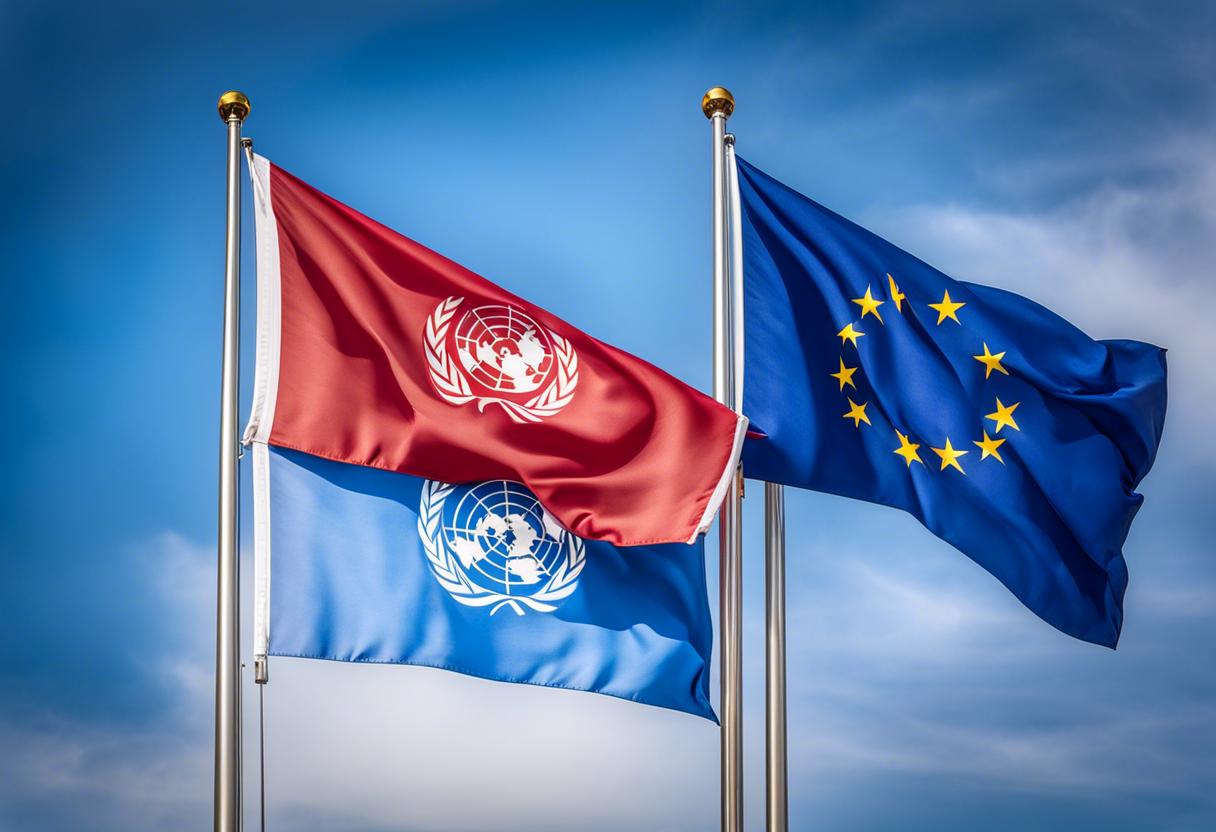Antonio Guterres, the Secretary-General of the United Nations, admonished European Union chiefs last Thursday against exercising “double standards” in addressing the crises in both Ukraine and Gaza. This sentiment was reiterated by Leo Varadkar, the Taoiseach.
As an EU conference kicked off in Brussels, Ukraine reported a successful defence against a significant missile assault aimed at their GUR military intelligence unit by Russia. Simultaneously, it was advised that civilians evacuate from a Russian town on the Ukraine border due to encroaching conflict and the activities of anti-Kremlin forces.
He stated that under international humanitarian law, the protection of civilians is of paramount importance and should be universally applied. UN representatives announced that almost one-fourth of Gaza’s population, approximately 2.3 million people, are nearing starvation. Over 80% have been uprooted due to Israel’s military response to an attack executed by Hamas militants last October, causing around 1,200 fatalities and 250 abductions.
Mr Varadkar expressed his disappointment in Europe’s reaction to the Palestine crisis. He believes it undermines their support for Ukraine as many countries in the global south view it as demonstrating double standards.
Josep Borrell, the EU’s foreign policy chief, describes the situation in Gaza as a failing of humanity rather than a humanitarian crisis. He called for Israel to better respect civilian life and permit more assistance to enter Gaza.
European leaders are also preparing to discuss a proposal to fund Ukraine’s defence through the purchase of arms. This will be funded by nearly €190 billion that has been frozen in the European financial system—the result of Russian assets since the inauguration of the all-out Russian attack in February 2022.
Borrell urged the leaders to swiftly approve the proposed plan, which is expected to generate around €3 billion annually for Ukraine’s defence.
In response to this action, Moscow has threatened to retaliate with severe legal and reputational consequences for the EU. Kremlin spokesperson Dmitry Peskov stated that Russia would employ all possible judicial mechanisms and methods that align with their interests.
Early on Thursday, air defence systems in the vicinity of Kyiv intercepted and eliminated 31 missiles, both cruise and ballistic, fired from Russia. This resulted in debris causing damage to infrastructure, the destruction of vehicles and causing injury to 17 individuals in Kyiv and nearby areas. The attack was the most significant Kyiv has experienced in a period of six weeks. Unnamed sources from GUR communicated to Ukrainian press that most of the missiles were intended to hit their facilities. Later on the same day, Mykolaive, a Black Sea city, was struck by a ballistic missile causing one fatality and injuring six people. Several Russian military and industrial sites in diverse Russian regions, including the Black Sea, have been targeted by GUR via drone and clandestine attacks. It is believed that the agency is closely associated with local militants in Ukraine who are currently active in the Russian territorial areas of Belgorod and Kursk. To ensure their safety, Russian authorities encouraged residents of the Graivoron border district to evacuate, adding that accommodation has been arranged in the Yaroslavl region situated to the northeast of Moscow.

